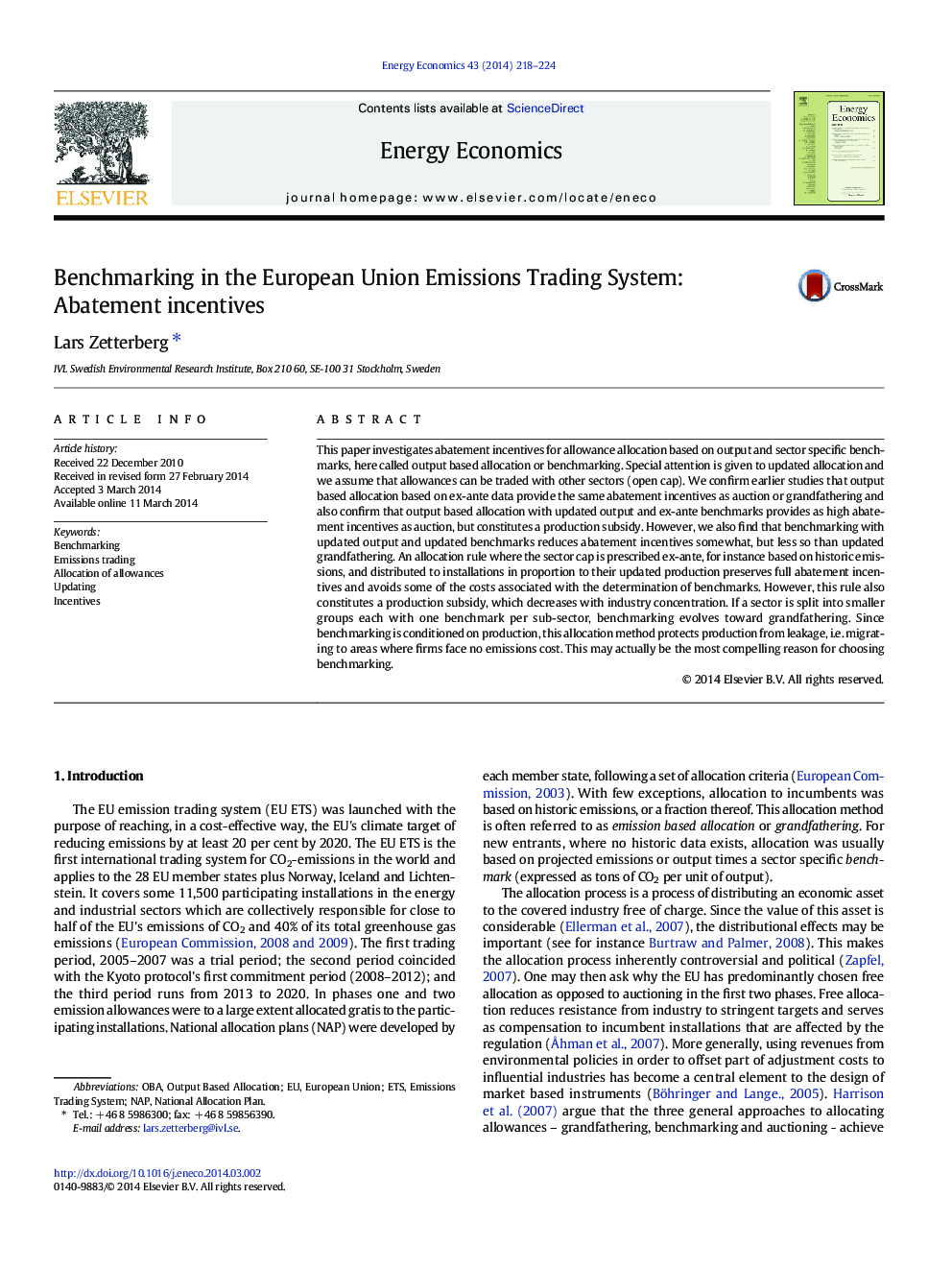| کد مقاله | کد نشریه | سال انتشار | مقاله انگلیسی | نسخه تمام متن |
|---|---|---|---|---|
| 5064566 | 1476720 | 2014 | 7 صفحه PDF | دانلود رایگان |
- Benchmarking with updated benchmarks and output reduces abatement incentives somewhat.
- Output based allocation with ex-ante cap preserves full abatement incentives.
- Benchmarking protects production from leakage.
This paper investigates abatement incentives for allowance allocation based on output and sector specific benchmarks, here called output based allocation or benchmarking. Special attention is given to updated allocation and we assume that allowances can be traded with other sectors (open cap). We confirm earlier studies that output based allocation based on ex-ante data provide the same abatement incentives as auction or grandfathering and also confirm that output based allocation with updated output and ex-ante benchmarks provides as high abatement incentives as auction, but constitutes a production subsidy. However, we also find that benchmarking with updated output and updated benchmarks reduces abatement incentives somewhat, but less so than updated grandfathering. An allocation rule where the sector cap is prescribed ex-ante, for instance based on historic emissions, and distributed to installations in proportion to their updated production preserves full abatement incentives and avoids some of the costs associated with the determination of benchmarks. However, this rule also constitutes a production subsidy, which decreases with industry concentration. If a sector is split into smaller groups each with one benchmark per sub-sector, benchmarking evolves toward grandfathering. Since benchmarking is conditioned on production, this allocation method protects production from leakage, i.e. migrating to areas where firms face no emissions cost. This may actually be the most compelling reason for choosing benchmarking.
Journal: Energy Economics - Volume 43, May 2014, Pages 218-224
